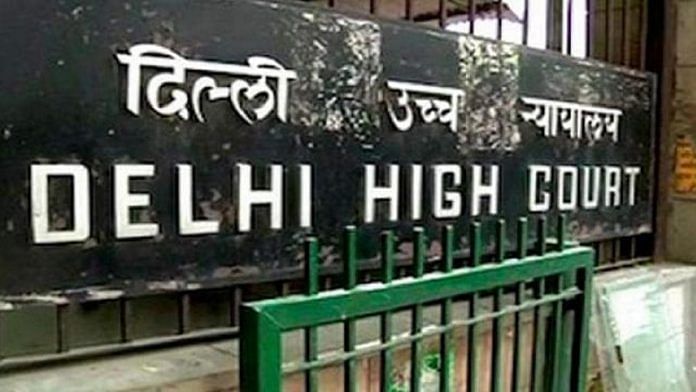New Delhi: A child survivor in the case of sexual assault has the option of not appearing physically in court when the latter is hearing a bail application filed by the accused facing charges under the Protection of Children from Sexual Offences (POCSO) Act, the Delhi High Court has said while laying down a slew of guidelines to prevent “re-traumatisation” of the victim in such matters.
A bench of Justice Jasmeet Singh issued the sensitive measures last week after noting the grave psychological impact on a survivor being present in the court. During such hearings, there are allegations and accusations doubting the integrity and character of the survivor and her family, which has an adverse impact on the psyche of the survivor, the judge said.
“The prosecutrix is forced to be present in court with the accused, who is the same person who has allegedly violated her. It was felt that it would be in the interest of the victim that she is not traumatised again and again by re-living the said incident by being present in court proceedings,” the judge said, while giving liberty to the victim to mark an online appearance during the hearing of bail petition of the accused.
The guidelines were framed when the court was hearing an appeal under POCSO, a special law enacted to provide a specialised mechanism for children subjected to sexual offences.
It was during the hearing that the court was informed about POCSO victims being asked to appear physically during bail applications. The bench expressed concern over the situation and directed the Delhi High Court Legal Services Committee (DHCLSC), the Delhi State Legal Services Authority (DSLSA) as well as Adit S Pujari, who was appearing for the petitioner, to submit ‘suggestive practice directions’.
The court has now accepted the submissions and issued guidelines to prevent re-traumatisation of the victim, including virtual hearings, representatives and sensitive questioning.
Also read: ‘Aim was to check laxity in probe’: What SC said as it held default bail can be cancelled on merits
Virtual hearings, representatives for victim
Apart from letting the victim take a call regarding her presence in court, the bench said the investigating officer, who is in-charge of investigation of the offence, is now also required to ensure that relevant enquiries about the victim and circumstances are made with sensitivity and the victim is not made to feel like an accomplice to the crime.
Justice Singh also said that virtual hearings may be utilised to ensure that the rights of the accused and the concerns of the victim are adequately balanced.
“Victim and the accused shall not come face to face in this manner and this can prevent the re-traumatisation of the victim,” he noted.
He also allowed appearance in subsequent or all hearings by a victim’s lawyer, parent, or guardian. A written authorisation to the Station House Officer (SHO) should suffice for this purpose. Further, he also permitted in-chamber interaction (private) in exceptional circumstances.
Sensitive questioning, reduce interface with victim
Justice Singh also stressed on “sensitive questioning of the victim” to ascertain her ‘apprehensions and fears’ instead of blunt questions such as whether the accused should be denied or granted bail.
The court has mandated that all bail applications which are allowed must be forwarded to the victim as it impacts her safety. Moreover, the application must be served well in time to the victim so that she gets an adequate opportunity to make her submissions.
To complement all such directions, the bench also noted that judicial officers must be sensitised to ‘reduce interface with the victim’.
It must be ensured that she is adequately represented, however, courts must ensure that the process itself does not become a punishment for the victim by exposing her to the accused and reopening her emotional and psychological wounds.
Watershed moment in child rights
POCSO, a gender neutral law, requires that all offences against children be mandatorily reported and sets no upper limit for reporting offences under the Act. It aims to put the victim at the core and prohibits revealing a victim’s identity.
Chief Justice of India D.Y. Chandrachud had recently noted that children are the voiceless victims of physical, emotional, and sexual violence and referred to the POCSO Act as a watershed moment in the history of child rights in India.
(Edited by Smriti Sinha)
Also read: Kochhars released on bail but cops repeatedly flout SC’s Arnesh guidelines to make arrests



